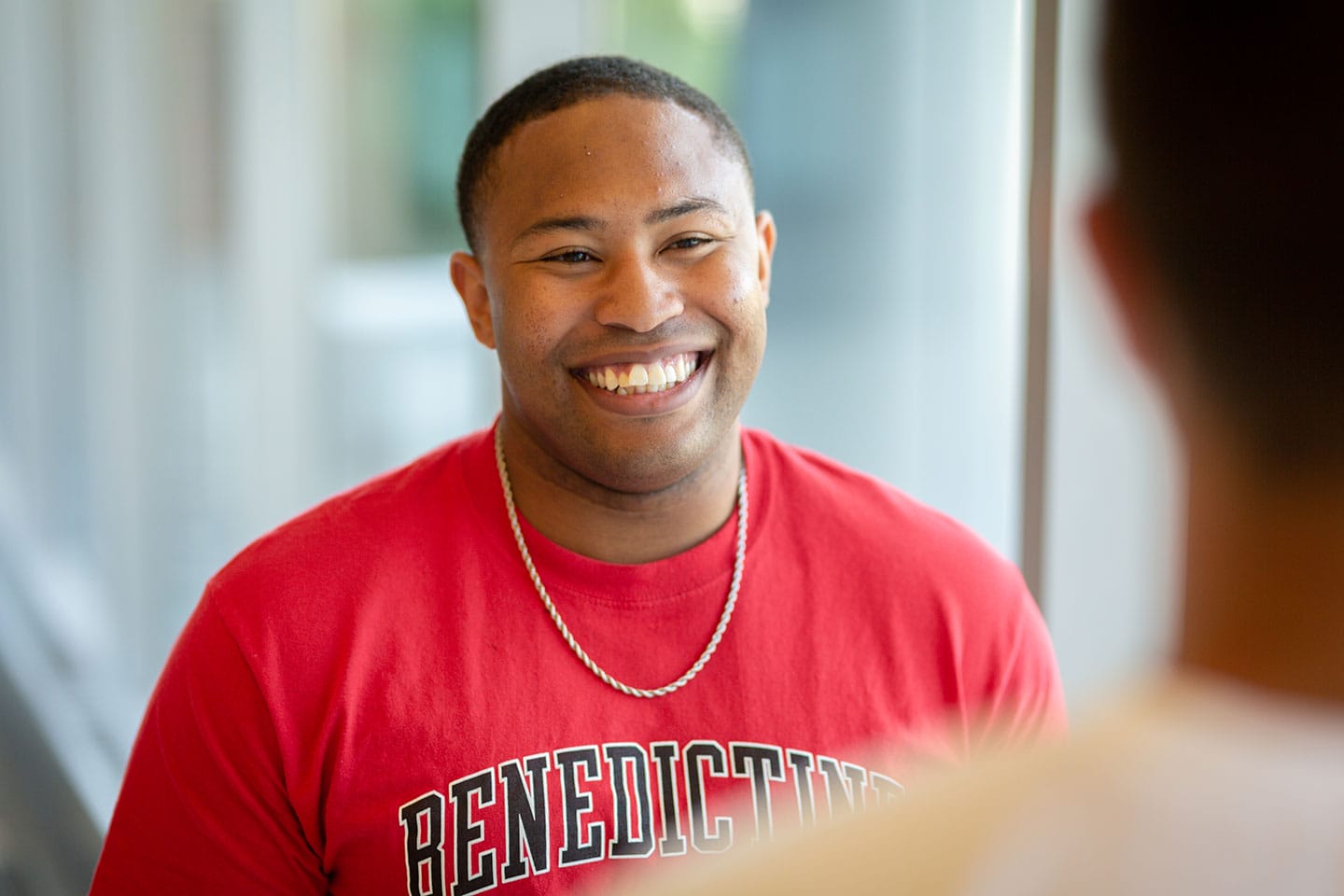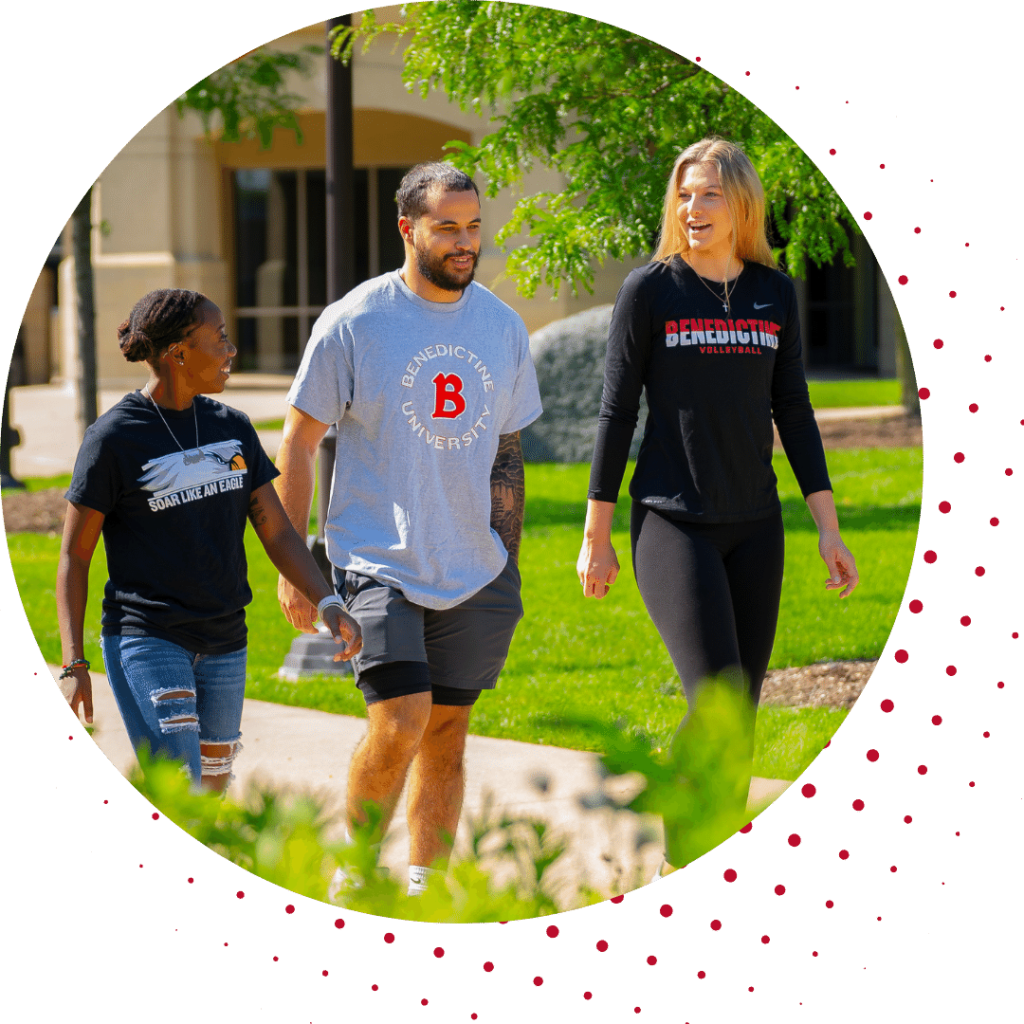Beyond the classroom
At Benedictine University, Sociology majors become agents of social change, empowered through a curriculum that fosters critical thinking and a deep understanding of the intricate relationship between individuals and society.
Our dedicated faculty, passionate educators, and active researchers guide students through a rigorous program that delves into the root causes of pressing social issues, equipping them with the knowledge and skills to develop effective solutions. Beyond the classroom, students engage in hands-on learning opportunities, collaborating with community partners to apply their sociological insights to real-world challenges.
Explore the Roots of Social Problems
Benedictine University’s Sociology program provides students with a comprehensive understanding of the major theoretical frameworks and concepts that distinguish sociology as a discipline. Students gain the ability to identify, analyze, and explain the causes and consequences of social inequality across multiple dimensions, including race, class, gender, and sexual orientation. They also develop a deep understanding of the social processes underpinning social change, enabling them to critically assess the effectiveness of various social policies and interventions.
In addition to gaining a strong theoretical foundation, Sociology majors at Benedictine University acquire the practical skills necessary to conduct and interpret data analyses. Students learn how to apply descriptive and basic inferential statistical techniques using computer software, empowering them to extract meaningful insights from sociological data. They also develop informational competence, demonstrating the ability to formulate research topics, conduct literature searches, select valid and appropriate sources, and accurately summarize selected literature.
Inside/Out Transformative Justice
The Inside-Out Transformative Justice course brings together students from Benedictine University and students from Sheridan Correctional Center for a semester-long class at Sheridan Correctional Center. Throughout the semester, Benedictine students will learn as peers alongside incarcerated students as we study issues related to crime, harm, and models of justice.
Embrace the power of sociology and embark on a journey of social transformation
Graduates emerge as well-rounded professionals, prepared for a variety of career paths. Benedictine’s unique blend of theoretical and applied courses ensures that our Sociology majors are not only equipped for immediate success but also well-prepared for graduate studies in sociology, social work, or law.
A sociology degree can lead to a variety of careers in various fields, including social work, case management, social policy analysis, child welfare, school social work, rehabilitation counseling, gerontology, community organizing, healthcare, and social work research. Other career options include marketing research analyst, public relations specialist, urban planner, human resources specialist, policy analyst, grant writer, non-profit director, teacher, writer, and consultant.
What our Sociology Alumni have done with this degree:
Our alumni have gone on to become caseworkers with the State of Illinois, school social workers, in-patient psychiatric aides, medical social workers at Central DuPage Hospital and psych technicians at Linden Oaks Behavioral Health. Sociology alumni have also completed Master of Social Work programs at UIC Jane Addams College of Social Work, University of Illinois at Urbana-Champaign, Loyola University Chicago and more.
Here is an example of some courses you may take in the Sociology program:
- Principles of Sociology
- Sex and Gender in Society
- Sociology of Popular Culture
- Social Welfare Services and Policies
- International Criminology
Social Science courses (SOCL)
Lisle undergraduate courses and descriptions
Mesa undergraduate course and descriptions
Practicums
Research Practicum: This course provides students with hands-on experience in research in a particular field (Psychology, Sociology, Criminology, or Criminal Justice). Students will work with a faculty member on an actual research project and will learn how to identify a research topic, conduct a literature review, formulate a hypothesis, design a research study, collect and analyze data, and write a scholarly paper in APA style.
Clinical Practicum/Lab: This course focuses on teaching interpersonal and primary-level skills of empathy, listening, and interviewing to the introductory-level helping professional. Students will learn how to establish rapport with clients, conduct effective interviews, and provide support and counseling.
Both courses are designated as Engaged Learning courses, which means that they provide students with opportunities to apply their classroom learning to real-world experiences. The Research Practicum is also a Writing Intensive course, which means that students will have the opportunity to write extensively and receive feedback on their writing from their instructor.
Internships
- Social Work Internship
- Sociology Internship
- Life Span Services Internship
These internships provide supervised experience in an on or off-campus setting related to the student’s interest in sociology. Students must have a minimum GPA of 2.5 or 3.0, depending on the internship, and must obtain consent from the program director and internship director prior to the 10th week of the semester preceding the field placement.


